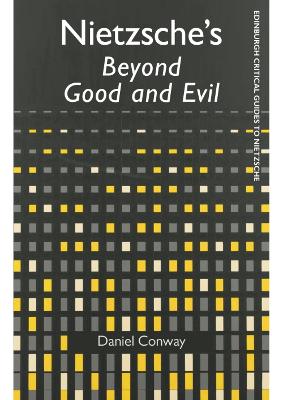Edinburgh Critical Guides to Nietzsche
1 total work
A critical introduction and guide to one of the most clearly developed statements of Nietzsche's mature philosophy Beyond Good and Evil (1886) offers an excellent, albeit challenging, introduction to the philosophical concerns of the Nietzsche's post-Zarathustran work. It is also exemplary of Nietzsche's period of greatest clarity and sophistication. Adopting an interpretative approach throughout, Daniel Conway assumes no previous knowledge of the text. He treats it as a coherent, unified and carefully crafted complete text. When read in this way, Beyond Good and Evil reveals itself as a guide to the education that Nietzsche prescribes for his best readers, at the brink of the new, post-moral era.
Conway makes sense of the overarching aims and structure of the book while providing a broader context for Nietzsche's arguments and positions. As you progress through the text, you will be rewarded with a more developed reading of the distinctly political agenda that emerges in the second half of Beyond Good and Evil.
Conway makes sense of the overarching aims and structure of the book while providing a broader context for Nietzsche's arguments and positions. As you progress through the text, you will be rewarded with a more developed reading of the distinctly political agenda that emerges in the second half of Beyond Good and Evil.
